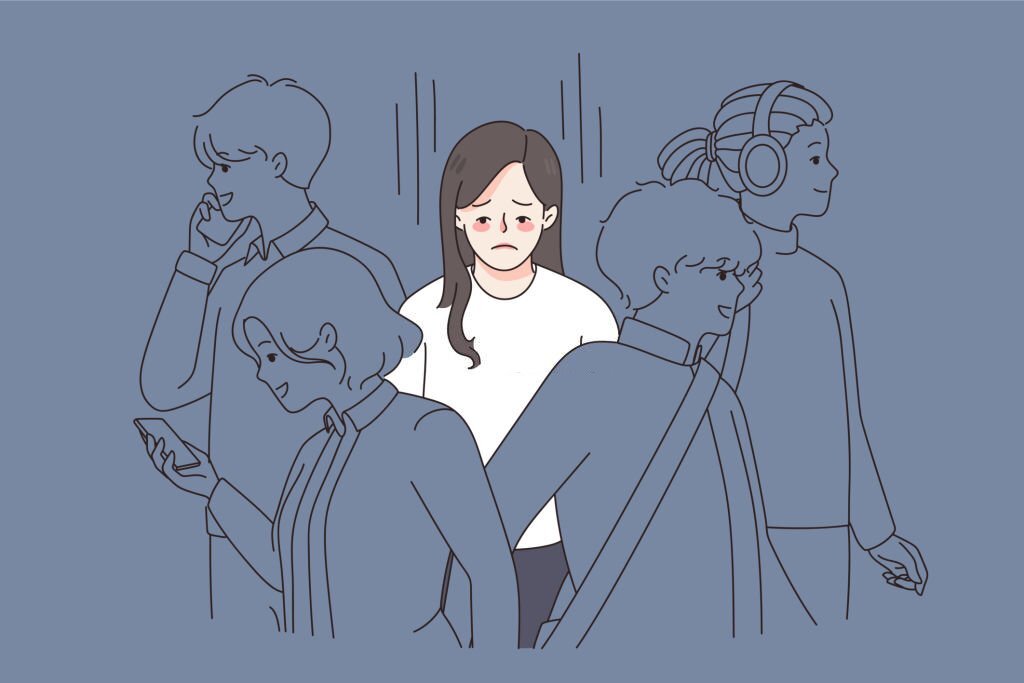Reclaiming Connection: Social Anxiety, Redefined Not Defeated
Social anxiety is one of the most common mental health challenges in the modern world, affecting millions of individuals across diverse age groups and backgrounds. It is often misunderstood as mere shyness or introversion, yet it can significantly interfere with personal relationships, professional growth, and overall well-being. The good news is that social anxiety can be redefined, managed, and even leveraged to foster deeper self-awareness and stronger interpersonal connections. By combining evidence-based strategies, mindfulness practices, and emerging technologies like artificial intelligence (AI), individuals can reclaim their ability to connect with confidence.
Understanding Social Anxiety
Social anxiety is more than occasional nervousness; it is an intense fear of being judged, criticized, or rejected in social situations. Common symptoms include rapid heartbeat, sweating, intrusive thoughts, and avoidance of social interactions. Neuroscientific research indicates that social_anxiety involves hyperactivity in the amygdala and altered patterns of prefrontal cortex regulation, which can intensify perceived social threats. Understanding the biological and psychological mechanisms behind social anxiety is the first step toward managing it effectively.
Redefining Social Anxiety
Redefining social_anxiety involves shifting perspective from limitation to awareness. Rather than viewing anxiety as a personal flaw, it can be understood as a signal of heightened sensitivity to social dynamics. This reframing allows individuals to acknowledge their experiences without self-judgment, promoting self-compassion and adaptive coping strategies. Recognizing social_anxiety as a spectrum rather than a fixed condition empowers individuals to take incremental steps toward engagement and connection.
Evidence-Based Approaches to Managing Social Anxiety
- Cognitive Behavioral Therapy (CBT): CBT remains the gold standard for treating social_anxiety. It helps individuals identify negative thought patterns, challenge irrational fears, and gradually expose themselves to feared social situations in a controlled manner.
- Mindfulness and Meditation: Mindfulness practices encourage present-moment awareness, reducing rumination and self-critical thoughts that fuel anxiety. Techniques such as deep breathing, body scans, and grounding exercises are highly effective in calming physiological responses.
- Exposure Therapy: Gradual exposure to social situations, starting with low-pressure interactions and progressing to more challenging scenarios, helps desensitize anxiety responses over time.
- Peer Support and Group Therapy: Engaging with supportive communities can normalize experiences, reduce isolation, and foster a sense of belonging.
AI-Powered Tools for Social_Anxiety
Artificial intelligence is enhancing the management of social anxiety by offering personalized guidance, real-time feedback, and safe practice environments. AI-driven platforms such as Wysa, Youper, and Woebot use natural language processing to simulate supportive conversations, track mood patterns, and provide evidence-based interventions.
Virtual reality (VR) combined with AI also offers immersive exposure therapy, allowing individuals to practice social interactions in controlled, low-stress environments. By analyzing user responses in real-time, AI can adjust scenarios to optimize learning and build confidence gradually. These technologies provide a safe and structured way to confront social fears, reinforcing coping mechanisms outside traditional therapy sessions.

Building Confidence and Connection
Reclaiming connection involves both internal and external strategies:
- Internal Strategies: Developing self-compassion, practicing positive self-talk, and recognizing progress help reduce self-criticism and enhance confidence.
- External Strategies: Gradually increasing social engagement, joining supportive communities, and seeking mentorship or coaching foster real-world connection.
By integrating these approaches, individuals can navigate social situations with greater ease, transforming anxiety into a guide for mindful, intentional interaction rather than a barrier.
The Role of Lifestyle in Social Anxiety Management
Lifestyle factors significantly influence the severity of social anxiety. Regular physical activity, sufficient sleep, balanced nutrition, and limiting stimulants like caffeine can stabilize mood and reduce physiological stress responses. Engaging in hobbies, creative pursuits, and volunteer activities can also create opportunities for low-pressure social engagement, further reinforcing confidence and social competence.
The Future of Social Anxiety Support
The future of social_anxiety management lies in hybrid approaches that combine human expertise with technological innovation. AI, VR, and wearable devices will continue to provide personalized interventions, monitor progress, and offer predictive insights. These tools will allow individuals to practice social interactions, track emotional responses, and receive tailored guidance anytime, anywhere, complementing traditional therapy and self-help strategies.
Conclusion
Social anxiety does not have to be a lifelong limitation. By redefining the condition, adopting evidence-based practices, and leveraging AI-powered tools, individuals can reclaim their ability to connect, engage, and thrive. Social_anxiety can be transformed from a barrier into a pathway for self-awareness, resilience, and authentic connection. With intentional effort and the right support, it is possible to navigate social environments with confidence, transforming moments of fear into opportunities for growth and meaningful connection
